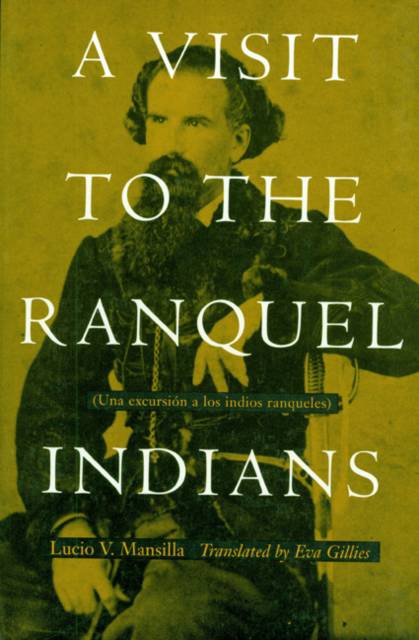
- Afhalen na 1 uur in een winkel met voorraad
- Gratis thuislevering in België vanaf € 30
- Ruim aanbod met 7 miljoen producten
- Afhalen na 1 uur in een winkel met voorraad
- Gratis thuislevering in België vanaf € 30
- Ruim aanbod met 7 miljoen producten
Zoeken
Omschrijving
Lucio V. Mansilla (1831-1913), the widely traveled and cultured scion of a famous family, was a colonel in the Argentine army when he undertook an "excursion" to the Argentine interior in 1870 to visit natives in areas then largely unknown. Mansilla's uncle, dictator Juan Manuel de Rosas, dominated most of Argentina from 1829 to 1852 and had led successful military expeditions against the frontier Indians in 1852. Mansilla set out for a reconnaissance into the tense border region just after a peace treaty had been signed with the Indians. Over the course of this expedition, Mansilla sent to a friend in the capital a series of letters which were then serially published in a leading Buenos Aires newspaper. His careful observations offer valuable ethnographic data, as Argentina's Indians were almost totally extinguished or assimilated within a few generations of Mansilla's expedition. Furthermore, his account, which contains thoughtful perspectives on the "Indian question" and the dichotomy of civilization and barbarism, stands as a lasting contribution to Argentine and Spanish-American literature. Mansilla's work both in this account and elsewhere made him a leading figure in the Argentina "Generation of 1880," a group crucial in the development of Argentine literary and intellectual life.
Specificaties
Betrokkenen
- Auteur(s):
- Uitgeverij:
Inhoud
- Aantal bladzijden:
- 467
- Taal:
- Engels
Eigenschappen
- Productcode (EAN):
- 9780803282353
- Verschijningsdatum:
- 1/08/1997
- Uitvoering:
- Paperback
- Formaat:
- Trade paperback (VS)
- Afmetingen:
- 152 mm x 227 mm
- Gewicht:
- 757 g

Alleen bij Standaard Boekhandel
+ 91 punten op je klantenkaart van Standaard Boekhandel
Beoordelingen
We publiceren alleen reviews die voldoen aan de voorwaarden voor reviews. Bekijk onze voorwaarden voor reviews.











